Radar Cross Section of Aircraft IA-63 Pampa
Introduction
Radar Cross Section (RCS) is a measure of how detectable is an object with a radar. Radar cross section is used to detect planes in a wide variation of ranges. For example, a stealth aircraft (which is designed to have low detectability) will have design features that give it a low RCS (such as absorbent paint, smooth surfaces, surfaces specifically angled to reflect signal somewhere other than towards the source), as opposed to a passenger airliner that will have a high RCS (bare metal, rounded surfaces effectively guaranteed to reflect some signal back to the source, lots of bumps like the engines, antennas, etc.). Analysis of RCS data plays important role in military aircraft design.
This application demonstrates Radar Cross Section (RCS) calculation for aircraft IA-63 Pampa.
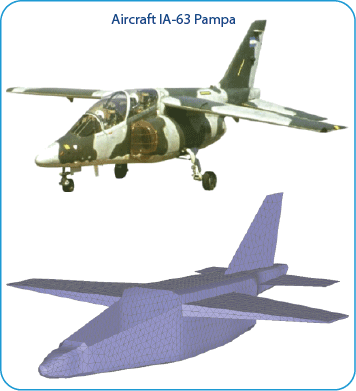
Simulation Model
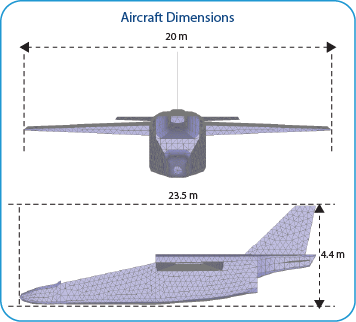
Simulation model parameters are the following:
- Aircraft model contains 5400 triangles
- Aircraft wing span is 20 m
- Aircraft length is 23.5 m and height is 4.4 m
- Simulation frequency 300 MHz and 1 GHz
Results
The RCS for both horizontal and vertical polarization is plotted in dBSM as a function of the azimuthal angle for 300 MHz and 1 GHz:
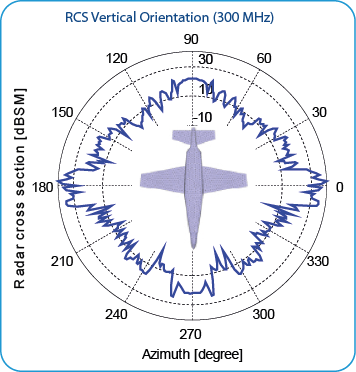
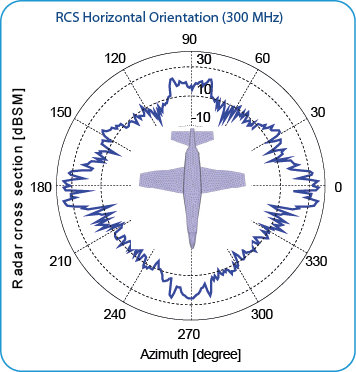
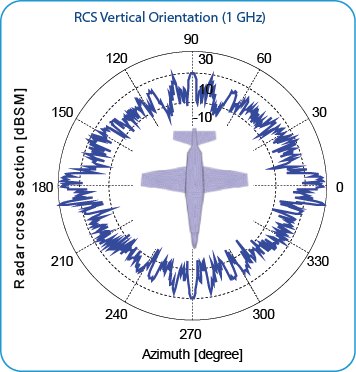
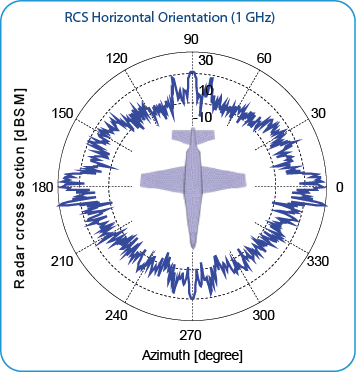
Scattered electric field distribution on aircraft IA-63 Pampa for both horizontal and vertical polarization is shown below for 1 GHz frequency.
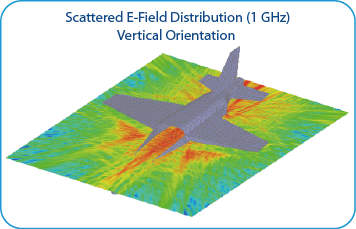
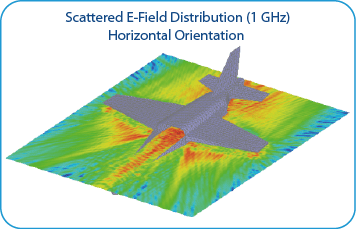
Comparison of RCS calculated with direct MoM and PO solutions is shown below for 1 GHz frequency:
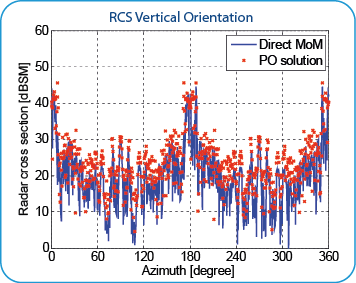
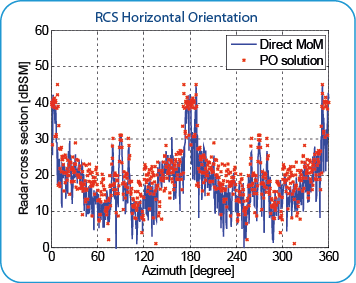
Conclusions
- Simulations of aircraft radar cross section (RCS) can be effectively done in EMC Studio/EMCoS Antenna VLab environment with direct MoM and PO solutions

